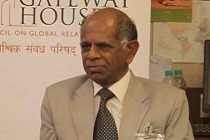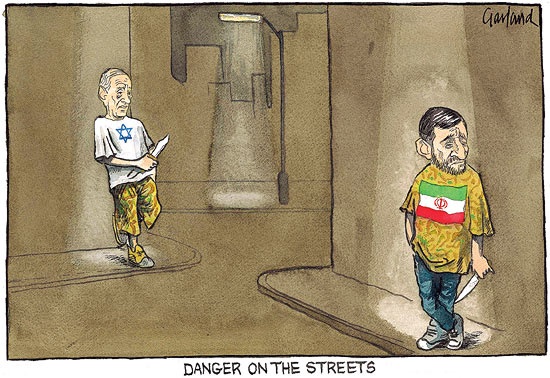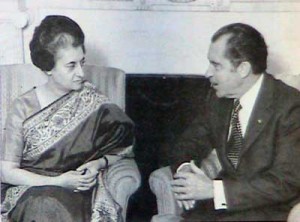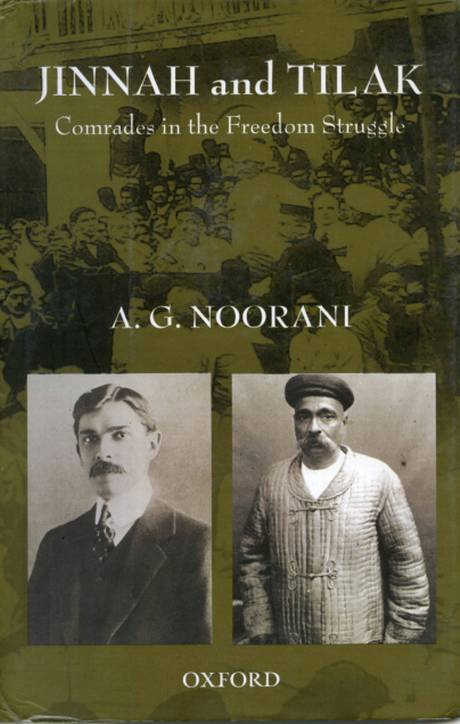India’s diplomacy is textual, not contextual
 Understanding the rationale behind India’s diplomatic decisions is essential for policymakers and citizens alike, so as to take better decisions in the future. Gateway House interviews former Ambassador to Italy, K. P. Fabian, to discuss how India's assessment of policy values the spoken word over context.
In his book, 'Diplomacy, Indian Style,' Fabian writes that “according to Greek mythology, Athena came out of the head of Zeus, fully grown and fully armed. There is a popular notion that India’s foreign policy came out of Pandit Jawaharlal Nehru’s head in a similar fashion. That notion is wrong.”
K. P. Fabian, former Indian Ambassador to Italy, shares his insights with Gateway House’s Rajeshwari Krishnamurthy on how the formulation of India’s foreign policies depends on the written word over circumstances.
(more…)
Understanding the rationale behind India’s diplomatic decisions is essential for policymakers and citizens alike, so as to take better decisions in the future. Gateway House interviews former Ambassador to Italy, K. P. Fabian, to discuss how India's assessment of policy values the spoken word over context.
In his book, 'Diplomacy, Indian Style,' Fabian writes that “according to Greek mythology, Athena came out of the head of Zeus, fully grown and fully armed. There is a popular notion that India’s foreign policy came out of Pandit Jawaharlal Nehru’s head in a similar fashion. That notion is wrong.”
K. P. Fabian, former Indian Ambassador to Italy, shares his insights with Gateway House’s Rajeshwari Krishnamurthy on how the formulation of India’s foreign policies depends on the written word over circumstances.
(more…)






 As I am writing this essay on the Republic Day 2011, naturally my thoughts wended their way to the Constitution of India adopted on January 26, 1950. Till then King George VI was the head of state of India. India’s ambassadors till that day carried their letters of accreditation from the King. On that day, Dr. Rajendra Prasad took over as President. Therefore, January 26, 1950 completed India’s journey to political independence.
It is important to realize that what was gained in 1947-50 was only political independence. Economic independence was yet not there. Economic independence implies that all Indians can live with dignity, eat well, be literate, afford to send their children to schools where there are good and competent teachers, have access to good and affordable health care, have an adequate income , and, above all, hold their heads high without fear, and proud of their motherland and its position in the comity of nations. In the first half of the twentieth century India’s per capita income grew at 0.1% annually. We should note, en passant, that per capita income as such is a misleading indicator of the true state of the majority of the people. Yet, it is historically important to take note of the growth rate of income under the British Raj.
As I am writing this essay on the Republic Day 2011, naturally my thoughts wended their way to the Constitution of India adopted on January 26, 1950. Till then King George VI was the head of state of India. India’s ambassadors till that day carried their letters of accreditation from the King. On that day, Dr. Rajendra Prasad took over as President. Therefore, January 26, 1950 completed India’s journey to political independence.
It is important to realize that what was gained in 1947-50 was only political independence. Economic independence was yet not there. Economic independence implies that all Indians can live with dignity, eat well, be literate, afford to send their children to schools where there are good and competent teachers, have access to good and affordable health care, have an adequate income , and, above all, hold their heads high without fear, and proud of their motherland and its position in the comity of nations. In the first half of the twentieth century India’s per capita income grew at 0.1% annually. We should note, en passant, that per capita income as such is a misleading indicator of the true state of the majority of the people. Yet, it is historically important to take note of the growth rate of income under the British Raj.







 By A.G. Noorani
Oxford University Press, Karachi
Pages 465, Rs. 795
Comrades in the Freedom Struggle
The book under review by the eminent scholar- cum- advocate A. G. Noorani was published in Pakistan and it will attract much attention and debate in India. Noorani's thesis, argued with formidable skill and compelling documentary support, is that Jinnah started as a secular nationalist. The British considered him one among their most formidable opponents. Gandhi did not treat Jinnah courteously. Jinnah was opposed to Gandhi's political philosophy and importing of religion into politics. Yet, Jinnah showed remarkable tact and patience and tried hard to work with the Congress till the Hindu fundamentalists in the Congress made it impossible for him to remain there with dignity.
By A.G. Noorani
Oxford University Press, Karachi
Pages 465, Rs. 795
Comrades in the Freedom Struggle
The book under review by the eminent scholar- cum- advocate A. G. Noorani was published in Pakistan and it will attract much attention and debate in India. Noorani's thesis, argued with formidable skill and compelling documentary support, is that Jinnah started as a secular nationalist. The British considered him one among their most formidable opponents. Gandhi did not treat Jinnah courteously. Jinnah was opposed to Gandhi's political philosophy and importing of religion into politics. Yet, Jinnah showed remarkable tact and patience and tried hard to work with the Congress till the Hindu fundamentalists in the Congress made it impossible for him to remain there with dignity.
